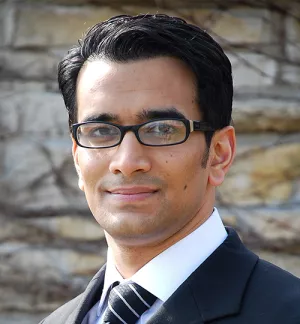HOME Secretary Alan Johnson has announced he is to make it harder for foreign students to get into the UK.
His move has echoes of Conservative policy, as the Tories have long argued the student visa system is "the biggest hole in our border controls" and called for more restrictions.
To read some of the media reaction to these policies, you would think foreign students were some kind of contagious disease that had to be kept out at all costs.
There is no doubt some would-be malefactors have taken advantage of the system. But that is an argument for tightening up checks on who can come to study here, not for cutting the total number who can. But that is what the changes will do.
To get a visa, students will have to pass a harder English test. Applicants from outside the EU will have to attain a level that's close to the GCSE. Students on short courses will have curbs on the dependents they can bring in, and those taking non-degree courses will be allowed to work only ten hours per week.
Announcing the changes, Mr Johnson said that Britain remained "open to those foreign students who want to come to the UK for legitimate study". But the changes he announced affect the vast majority who do want to come here for legitimate study. None of the changes will actually affect the checks we do to make sure that the remainder who get in are not radicals, extremists or trainee terrorists. The reforms miss the target.
Of course, all students who we let into the UK should be carefully scrutinised. Questionable, or fictional, institutions should be investigated and blacklisted, and the government has made a good start on this. Students should lose their right to a student visa if they do not turn up to any classes, the better to find out who is really here to study. But these measures would be aimed at sorting the legitimate students from the rest, not reducing the total number.
In fact, there are good reasons to have a healthy flow of foreign students in the country. Our strength is our openness. Reducing the number of foreign student visas is counterproductive. The United States tried it after 9/11 but has now reversed its approach, realising the harm it is doing. We can only remain an outward-looking and vibrant society if we remain open to the world beyond our borders. It is precisely many of these foreign students who will help their countries to reduce terrorism over the long run.
First, studying here often gives students from younger democracies a better view of the life under an established liberal democracy. Many students from foreign countries will return home with a new-found good impression of values such as a pluralistic press and the separation of powers. They may even set up vital civil-society institutions back home.
Second, giving foreign students the opportunity to study here, and make friends and contacts, improves international links. I remember being at Sandhurst for the Territorial Army commissioning course, when a senior officer told me many of the current Iraqi officer corps were Sandhurst graduates. In 2003, on the eve of the Iraq war, their former UK officer cadets were able to call them in Iraq, explain the situation and tell them to switch sides. University is an ideal time and place to make connections like this.
But this week's changes to the system will reduce the number of foreign students coming to study here, while doing nothing to check that those who do come are not here with malicious intent. We should be making policy based on the majority of foreign students who want to study hard and fulfil their aspirations.
Azeem Ibrahim is research scholar at the International Security Programme, Kennedy School of Government at Harvard University in the US.
Ibrahim, Azeem. “Why It Would Be Wrong to Close Door on Foreign Students.” The Scotsman, February 11, 2010



